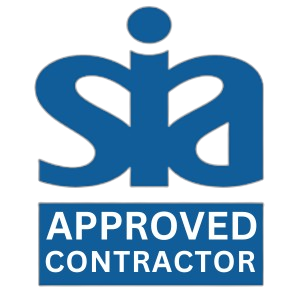When it comes to securing your assets, business, or personal safety, partnering with the right security provider is paramount. Close Protection Services are often at the forefront of ensuring that high-profile individuals, families, or business leaders remain safe in a variety of environments. However, even the best security firms need to be evaluated regularly to confirm that they are meeting your needs and expectations.
In this blog, we’ll cover essential steps to evaluate the success of your current security provider, particularly in relation to Close Protection Services, and help you ensure that you are receiving the highest level of security.
1. Review Service Contracts and Key Performance Indicators (KPIs)
A great place to begin is by revisiting the terms of your contract with your security provider. Ensure that the Close Protection Services provided align with your specific needs, whether you’re looking for full-time protection, high-risk event coverage, or discreet security for daily operations.
Look for clearly defined Key Performance Indicators (KPIs) in the agreement, such as:
- Response times: How quickly does the security team react to potential threats?
- Training levels: Are the close protection officers trained to a high standard, including situational awareness, defensive tactics, and emergency response?
- Regularity of updates and reports: Does your provider offer consistent updates about security assessments, threats, and any changes that need to be addressed?
- Incident reports: Ensure that your provider shares detailed reports of any security incidents or risks, demonstrating their vigilance and ability to react.
By assessing these contractual terms, you can measure whether the services you’re receiving match the expectations set forth at the beginning of the relationship.
2. Assess the Experience and Training of the Personnel
Close Protection Services rely heavily on the expertise of the security personnel assigned to you. To evaluate their success, review the qualifications and experience of the team members. Do they have military or law enforcement backgrounds? Have they received specialized training in close protection, conflict de-escalation, and advanced security tactics?
In many cases, the success of Close Protection Services hinges on the personal experience and ability of the assigned agents to assess risks, make split-second decisions, and handle complex security situations. A well-trained security professional can not only protect you from potential threats but also mitigate risks in a way that maintains your reputation and privacy.
Ask your provider for:
- Background checks and verification of certifications.
- The number of years the protection agents have worked in high-risk situations.
- Any ongoing professional development to stay updated on best practices.
3. Evaluate Communication and Coordination
Effective communication is a cornerstone of any successful security strategy, and it is especially crucial for Close Protection Services. If you don’t feel like there’s open, transparent communication with your provider, this could be a red flag.
Check how well your provider coordinates with other teams, such as local law enforcement, event security, or other support services. Close protection officers need to communicate seamlessly with all parties involved to ensure that every scenario is covered, whether it’s a regular workday or a high-profile event.
Also, assess how they communicate with you. Are you receiving timely updates on security risks or changes? Do they proactively keep you informed about any evolving threats or necessary adjustments?
The ability to stay in constant contact, especially in a crisis, can make the difference between avoiding harm and being caught off-guard.
4. Feedback and Client Satisfaction
One of the best ways to gauge the success of your security provider is to ask for feedback from employees, family members, or anyone else who interacts with the security personnel regularly. Their firsthand experiences can give you an understanding of how well the Close Protection Services are working in practice.
Conduct periodic reviews to assess:
- Whether those protected feel safe and secure.
- How well security personnel integrate into your lifestyle without causing disruption.
- Whether any concerns or complaints have been raised about the team’s performance.
In addition to internal feedback, ask your provider to conduct anonymous surveys or check-ins with those they’re protecting. This allows for objective insights into their success or areas for improvement.
5. Incident Handling and Proactive Risk Management
No security plan is flawless, but the ability to handle incidents effectively is crucial. Evaluate how your security provider handles unforeseen events or threats. Look into how previous incidents were managed:
- How quickly did the protection team respond?
- Were there any breaches or lapses in the safety protocol?
- What changes or improvements were made after incidents?
Proactive risk management is essential for Close Protection Services. A top-tier provider should continually assess the evolving security landscape, identifying potential threats before they manifest. Ask about the strategies they use to stay ahead of emerging risks, such as cybersecurity threats or geopolitical instability that might impact their services.
6. Cost vs. Value
Lastly, it’s important to evaluate the overall value you’re receiving. While cost shouldn’t be the sole determining factor, it’s vital to consider whether the level of service you are receiving justifies the cost. Sometimes, a more expensive security provider may offer superior technology, better-trained personnel, and more personalized services.
However, if you feel that the Close Protection Services you’re receiving don’t match the investment, it may be time to reconsider your provider.
Conclusion
Regularly evaluating your security provider’s performance ensures that your Close Protection Services remain effective, current, and responsive to your evolving needs. By focusing on the quality of personnel, communication, incident management, and feedback, you can assess whether your security team is truly providing the protection you deserve.
Remember, when it comes to personal or business security, you can never be too careful. Regularly reviewing your security services is the best way to ensure you stay safe and secure in any situation.




